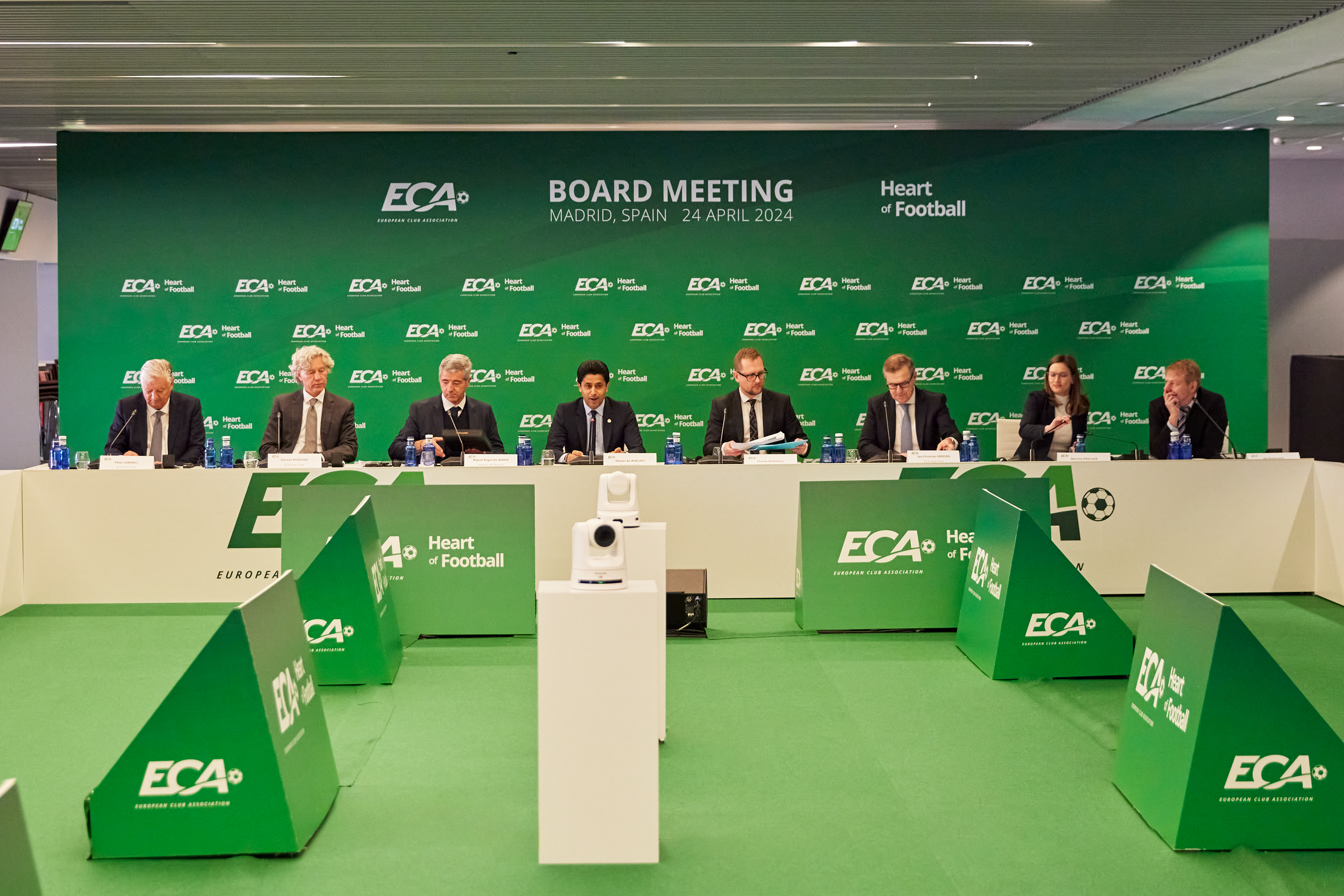April 25 – The European Club Association has launched its first Sustainability Strategy which the organisation hopes will tackle several pressing social and environment issues facing the game.
The project is the culmination of a process that gained impetus last year with the appointment of a Head of Sustainability, Gaia Pretner, and the formation of a pan-European Working Group comprising representatives of ECA Member Clubs.
“Sustainability must be a priority for all stakeholders. Our sport faces huge challenges from climate change, racism and social exclusion – growing more urgent by the day,” said ECA chairman, Nasser Al-Khelaïfi.
“In the face of these challenges, it is our responsibility to take proactive measures within our sphere of influence to minimise the impact on our members, and supporting clubs in finding solutions locally. While acknowledging that we may not have all the solutions, our new Sustainability Strategy will be at the core of every decision going forward.”
Launching the strategy, Pretner commented: “Our goal is to elevate European football’s sustainability approach and motivate our member clubs to develop their own strategies and take consistent, impactful actions. ECA’s approach is to lead by example in sustainability, inspiring and empowering clubs to take action. Our top management prioritised sustainability as one of ECA’s eight key pillars for our upcoming strategic cycle. We have provided a comprehensive sustainability training for our entire ECA workforce and extended this education to our member clubs.”
ECA has outlined a five-step approach to achieve successful integration:
- Creating a dedicated structure or function focused on sustainability.
- Defining a vision that aligns sustainability practices with good governance.
- Assessing the club’s impacts, risks and opportunities to establish clear priorities, targets and KPIs.
- Publicising sustainability strategies through annual reports to ensure transparency and accountability.
- Adopting cross-functional initiatives that encompass training, capacity building and communication on sustainability principles.
Pretner explained: “Our social objectives revolve around the policies of combating racial discrimination from football, providing safe havens for young children; ensuring fair treatment and inclusion for all; making football accessible to people of all abilities; safeguarding the health and well-being of football participants of all ages; supporting refugee integration and championing dignity; and respect and equal rights for everyone. “
Added to that are four key environmental objectives:
- Optimising the consumption and life cycle of products.
- Taking climate action.
- Shaping events to minimise environmental impact.
- Providing guidance on infrastructure sustainability.
And four governance objectives:
- Sustainability risk management.
- Accountability and transparency through the commitment to publish a Sustainability Report every year and to develop and implement a Sustainability Management System.
- Training and capacity building on sustainability topics for both ECA Staff and ECA Members.
- Communication strategy on ECA sustainability related activities.
Contact the writer of this story at moc.l1744830272labto1744830272ofdlr1744830272owedi1744830272sni@w1744830272ahsra1744830272w.wer1744830272dna1744830272

